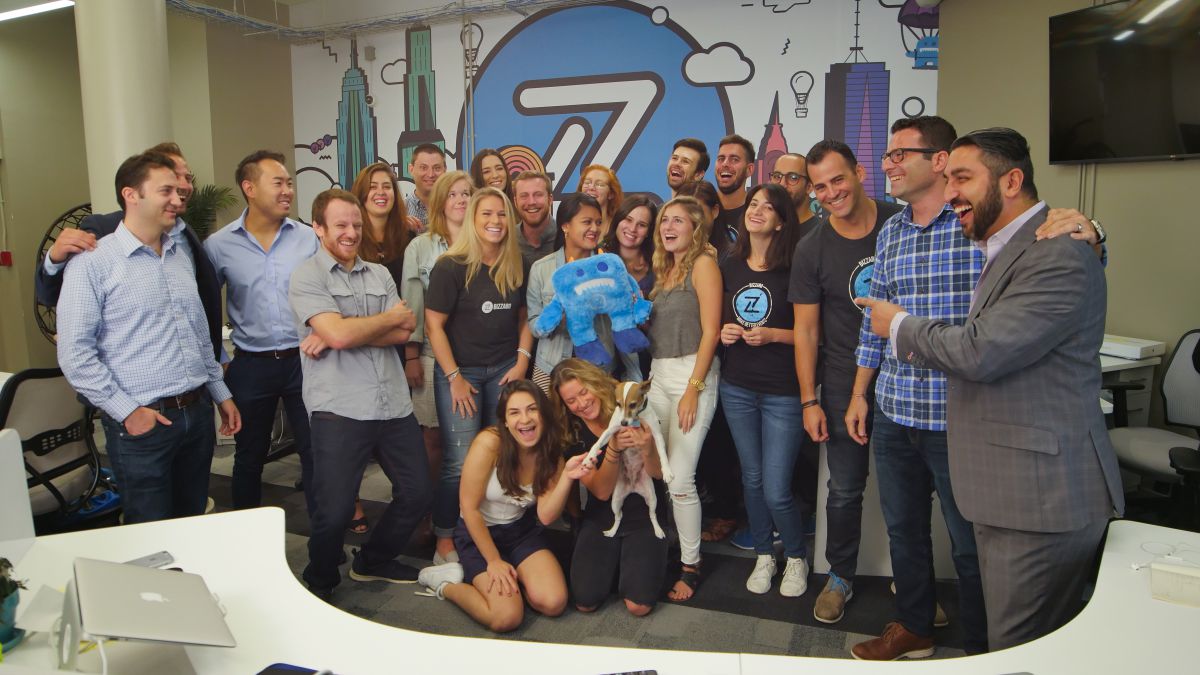Startups are typically born out of a founder’s passion — an idea to make an existing process better or to create something new in an untapped market. While turning an idea into a successful company is no easy feat, being an effective leader when your company does take off is even harder.
We spoke with five tech leaders to find out the most valuable lessons they’ve learned at the helm.

Mehdi Daoudi, co-founder and CEO at Catchpoint
Build a team
It’s crucial to build a team with a strong leader. This is especially true for business and marketing departments, as their decisions directly affect the growth and health of your company.
Value your product
There is no such thing as a minimum viable product, there is only one product. Make sure you build yours to scale because you won’t have time to fix major issues if the entire product is poorly built.
Invest in recruiting
Your employees are the backbone of your business. Invest in your recruiting team to find the best people possible without making too many mistakes early in the game.
Create a strong customer driven culture from the day one
Don’t settle as a startup. Do big things, stay nimble, and never be afraid to innovate.

Dennis Mortensen, CEO and co-founder at x.ai
Build to solve a pain, not to enter a market
Your product should try to be a solution to a well-recognized and agreed-upon pain, rather than an attempt at entering a given market.
Focus!
Focus on one thing, and one thing only, and try to become world class at it. Try to avoid company or project settings that rhyme with 'feature parity.'
Unite the team under one goal
Don’t suffocate on process and instead find a single KPI that the company can run against for the initial part of the journey. Most process arrives after having delivered on the original promise.
Transparency and feedback keep a team happy
You keep the right people around through radical transparency and feedback — and those who don’t like what they see or hear are probably not a good fit.
Stay the course
Failure is a likely outcome because building a startup doesn’t mean survival at all costs. Never pivot or surrender, stick to your original focus or die trying.

Eido Gal, co-founder at Riskified
Hire intelligent, capable people and help them find their way.
Our head of business development used to be one of our engineers. Our head of account management used to analyze transactions. We hire very good people and then give them the latitude to find the way to make the best use of their talents. It's a win-win.
Our teams perform better when they’re fully invested in Riskified, so we don’t keep secrets
Every other week I lead a company meeting where everyone learns exactly how we’re performing. We share in our successes and our failures, so we believe everyone across the team deserves to know how we’re doing. It scares HR a little bit, but I think it’s important.
Don't be afraid to question or to be questioned
Every other week I open that same company meeting to questions. We have a lot of great minds at Riskified, and we want them thinking about how we can improve and questioning leadership's decisions. That makes us a better company.
"That's how we've always done it" is a terrible reason to do anything
We built our company by finding a better way to prevent card-not-present fraud. Everyone else was doing it the way they always had. If your answer to "why?" is essentially "because," you should reexamine.
Smart people tend to know smart people. Take advantage of that
At the outset, my cofounder Assaf and I hired smart friends to help us build the company. Then we hired the smart friends of our smart friends. And we've gone from there. Your people are your best asset in many ways.

Ed Robinson, President and co-founder of Stash
Surround yourself with the right people
Startups move quickly and change constantly. You need to surround yourself with people that have different expertise. Communicate with them, listen to their feedback and apply business strategy accordingly.
Set the right metrics to track
Decide on the three to five core KPIs of the business. Make sure they align with the business and customer goals. Then, communicate these clearly, understand the drivers of these metrics, and remain laser focused on achieving them.
Speak to customers and listen to their feedback
Customers are key. You need to set time in your schedule to speak to customers and listen to what they are saying about the product. Understand how they found you, what they like, what they dislike, and what they need/want. Track the feedback and prioritize the work according to achieve your business goals.
Constantly test and iterate
Don’t be afraid to make a decision. Constant testing and performance tracking is the key to improving the product and metrics across the board.
Have Fun
Every day is different so create a culture where your team can have fun. Share and celebrate key milestones but also set an environment where the team feels free to communicate and stay flexible.

Alon Alroy, co-founder and Chief Marketing Officer at Bizzabo
Define and live by your company values
Build a strong foundation of values from early on to make sure that there is a common understanding of expectations. These will serve as guidelines for every interaction within the company and with customers. Once you’ve crafted your values, build a plan for putting them into practice.
Hire for 'culture add'
Diversity of experience and perspective makes your organization stronger. While it’s important to hire those who are aligned with your company’s values, you should not hire people simply because they are agreeable or like-minded. Instead of thinking about what a candidate lacks, think about what they can bring to the table.
Lead from behind
Put your people first. Push them to take the initiative, fail forward and be recognized for wins. Lead from the front when things get messy, and stay behind when things go well.
Structure recognition into your company's DNA
Your company cannot get anywhere without the hard work of everyone in it. Recognition is a fundamental part of creating purpose and passion in an organization. This in turn leads to a more productive work environment, happier customers, and ultimately a more profitable business.
Embrace change
Change is an inevitable part of a company's life and those that succeed view change as a healthy process that leads to growth. Those who embrace it and adapt to it with a proactive and positive mindset are the entrepreneurs of today and leaders of tomorrow. Listen for it. Act on it. Be grateful for it.
Images via Facebook and featured companies.







